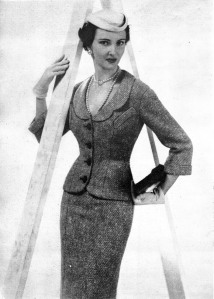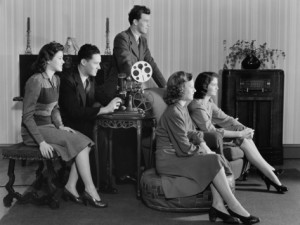So, I read this article by Amy Julia Becker yesterday: “Why We Need Paternity Leave.” First off, I want to applaud Becker for supporting this idea. One of the more significant problems facing families and parents today in America is that there are rarely good options in all things money and career related. Very often, men and women are forced to make decisions that they’d rather not make in order to simply be practical. These decisions, while more than understandable and completely justifiable on an individual level, can frequently have the long-term effect of hurting both men’s and women’s options in the long term and as a society.
Paternity leave– a concept thoroughly discussed by feminists (and argued against by anti-feminists)– could be a very excellent step forward in eliminating some problems. I’m not an expert, and I’m not thoroughly read up on the idea, but what I have read about it has a common-sense appeal. Thusly, I was happy when Becker decided to write a post about it.
And then she said this:
Much of the feminist movement has not empowered and protected women or called men to greater responsibility for their actions and relationships. Rather, it has encouraged women to become just like men.
First of all, this is not the first time that Becker has made a claim like this. While most of her writing for her.meneutics is related to motherhood, she does have a few posts like “Hookup Culture is Good for Women and other Feminist Myths.” While I’ve really appreciated the sorts of thoughts she shares in her motherhood-related posts, anytime she writes about– or even casually mentions– feminism, I’m left with not a whole lot else except irritation.
And I’m irritated by this because this post had so much promise. I’m thrilled anytime anyone introduces a feminist or non-traditional-gender-roles conversation into a mainstream Christian media outlet like Christianity Today, and it’s beginning to happen more frequently. While her.meneutics, the part of Christianity Today set apart for “the Christian woman,” tends to be a little (or a lot) more conservative than I am, I still fairly loyally read their articles. I think it’s important to at least be aware of what everyone is saying.
So here’s Becker, writing about a feminist idea, advocating for it, and suddenly there’s a whole paragraph awkwardly placed slap dab in the middle that seems to scream “I KNOW I’M TALKING ABOUT A FEMINIST THING PLEASE NO ONE THINK I’M A FEMINIST BECAUSE I’M ABSOLUTELY NOT.”
Also, the editors at her.meneutics used this quote in their initial facebook link for the post– I don’t want to stretch that too far, but choosing this particular quote when it doesn’t represent the body of her argument? Seems a little click-bait-y.
Frankly, it’s getting a little exhausting to be attracted to an article coming from a Christian media source because it’s promoting a feminist concept only to get there and have the rug ripped out from under me– and then be run over by the bus I just got thrown under. And, just to be fair, it’s not just Christians:
The arguments, the language, the ideas of feminism are co-opted– stolen– and then the writer advocating for this feminist idea spends over 10% of her time (104 words in a 997 word post) seemingly doing her best to demonize feminism and feminists. This only exacerbates and perpetuates the problem– women like Becker want nothing to do with feminism because of what they think feminism is, and then they take our arguments– but add the statement that this can’t possibly be feminism because see, I think feminists are baby-killers.*
And, because I used to say pretty much exactly the same thing, I understand why Becker made this statement. I used to believe that feminism was almost single-handedly responsible for the destruction of America. However, the first time I actually started engaging with modern feminism? That all ended. Because I know now that statements like “much of the feminist movement has not empowered or protected women” are categorically false.**
Feminism got women the vote.
Feminism set up domestic violence shelters and hotlines.
Feminism made it illegal for a man to abuse his wife.
Feminism made it possible for a woman to leave her abusive husband.
Feminism ensured that women could own property.
Feminism allowed Becker to argue for paternity leave (or anything) in public.
And this frustrates me, because when Becker (and others) write posts like these, they are so close. This is where we could start a conversation. This is where I could join together with them in a common cause. These times, these posts, are where we could sit down over a cup of coffee and hash out our similarities as well as our differences.
But, when I read like post like this one, all I get is: “you’re not invited.”
*please read the whole post. She did make a slightly less hyperbolic version of that argument.
**the “much” in the beginning of that sentence, while technically there to prevent an absolutist statement, doesn’t suceed.















